Si has mantenido el estatus de tarjeta verde en los Estados Unidos durante un período de cinco años consecutivos, eres elegible para presentar una solicitud de naturalización y convertirte en ciudadano estadounidense. Si tu cónyuge es ciudadano estadounidense, el requisito de residencia continua se reduce a tres años. Estos criterios se conocen comúnmente como la «regla de los 5 años» y la «regla de los 3 años», respectivamente.
Para convertirte en ciudadano estadounidense, debes tomar el «Examen de Educación Cívica», que incluye 100 preguntas. Durante la entrevista, te harán 10 preguntas y necesitas responder al menos 6 de ellas correctamente. Para los solicitantes que tienen 65 años o más y han vivido en los EE. UU. durante 20 años o más (solicitantes 65/20), solo necesitan estudiar y prepararse para 20 preguntas marcadas con asteriscos. Durante la entrevista, les harán 10 preguntas y necesitan proporcionar 6 respuestas correctas.
Aquí están las últimas 100 preguntas para el examen de ciudadanía, incluyendo inglés y la traducción que hemos preparado, así como las grabaciones de audio en inglés proporcionadas por USCIS. También las he guardado en un documento de Google para aquellos que lo necesiten:
- Si no tienes una cuenta de Google, haz clic en este enlace. Puedes imprimirlo o descargarlo a tu computadora en formato MS-Word, PDF u otros formatos de documentos; pero no tendrás permisos de edición.
- Si tienes una cuenta de Google, haz clic en este enlace, y se creará una copia en tu cuenta, para que puedas editarla o imprimirlo tú mismo.
Algunas preguntas son bastante actuales, como quién es el Presidente y el Vicepresidente actuales, a qué partido político pertenece el Presidente actual, quién es el Portavoz de la Cámara, así como el Gobernador y los Senadores de tu estado. El audio no proporcionará las respuestas a estas preguntas. ¡Asegúrate de usar la última versión!
Muchas preguntas tienen respuestas múltiples; a menos que se requiera lo contrario, solo necesitas proporcionar una respuesta, no es necesario dar varias o todas las respuestas.
100 preguntas para la entrevista de naturalización
| I. AMERICAN GOVERNMENT | GOBIERNO AMERICANO |
| A. Principles of American Democracy | Principios de la democracia estadounidense |
| 1. What is the supreme law of the land? | ¿Cuál es la ley suprema de la tierra? |
| A: The Constitution | La Constitución |
| 2. What does the Constitution do? | ¿Que hace la constitucion? |
| Sets up the government | Establece el gobierno |
| Defines the government | Define el gobierno |
| Protects basic rights of Americans | Protege los derechos básicos de los americanos |
| 3. The idea of self-government is in the first three words of the Constitution. What are these words? | La idea de autogobierno está en las tres primeras palabras de la Constitución ¿Cuáles son estas palabras? |
| A: We the People | Nosotros la gente |
| 4. What is an amendment? | ¿Qué es una enmienda? |
| A change (to the Constitution) | Un cambio a la Constitución) |
| An addition (to the Constitution) | Una adición (a la Constitución) |
| 5. What do we call the first ten amendments to the Constitution? | ¿Cómo llamamos a las diez primeras reformas a la Constitución? |
| A: The Bill of Rights | El proyecto de ley de los derechos |
| 6*. What is one right or freedom from the First Amendment? | ¿Cuál es un derecho o libertad de la Primera Enmienda? |
| Speech | Discurso |
| Religion | Religión |
| Assembly | Asamblea |
| Press | Prensa |
| Petition the government | Petición el Gobierno |
| 7. How many amendments does the Constitution have? | ¿Cuántas enmiendas tiene la Constitución? |
| A: 27 | 27 |
| 8. What did the Declaration of Independence do? | ¿Que hizó la declaración de Independencia? |
| Announced our independence (from Great Britain) | Anunciamos nuestra independencia (de Gran Bretaña) |
| Declared our independence (from Great Britain) | Declarada nuestra independencia (de Gran Bretaña) |
| Said that the United States is free (from Great Britain) | Dijo que Estados Unidos es libre (de Gran Bretaña) |
| 9. What are two rights in the Declaration of Independence? | ¿Cuáles son dos derechos en la Declaración de Independencia? |
| Life | Vida |
| Liberty | Libertad |
| Pursuit of happiness | Búsqueda de la felicidad |
| 10. What is freedom of religion? | ¿Que es libertad de religión? |
| A: You can practice any religion, or not practice a religion. | Puedes practicar cualquier religión o no practicar una religión. |
| 11*. What is the economic system in the United States? | ¿Cómo es el sistema económico en los Estados Unidos? |
| Capitalist economy | Economía capitalista |
| Market economy | Economía de mercado |
| 12. What is the «rule of law»? | Cuál es la regla de ley»? |
| Everyone must follow the law. | Todos deben seguir la ley. |
| Leaders must obey the law. | Los líderes deben obedecer la ley. |
| Government must obey the law. | El gobierno debe obedecer la ley. |
| No one is above the law. | Nadie está por encima de la ley. |
| B. System of Government | BSistema de Gobierno |
| 13*. Name one branch or part of the government. | Nombre una rama o parte del gobierno. |
| Congress | Congreso |
| Legislative | Legislativo |
| President | Presidente |
| Executive | Ejecutivo |
| The courts | Los tribunales |
| Judicial | Judicial |
| 14. What stops one branch of government from becoming too powerful? | ¿Qué impide que una rama del gobierno se vuelva demasiado poderosa? |
| Checks and balances | Cheques y saldos |
| Separation of powers | Separación de poderes |
| 15. Who is in charge of the executive branch? | ¿Quién está a cargo del poder ejecutivo? |
| A: The President | El presidente |
| 16. Who makes federal laws? | ¿Quién hace las leyes federales? |
| Congress | Congreso |
| Senate and House (of Representatives) | Senado y la Cámara de representantes) |
| (U.S. or national) legislature | legislatura (estadounidense o nacional) |
| 17*. What are the two parts of the U.S. Congress? | ¿Cuáles son las dos partes del Congreso de los Estados Unidos? |
| A: The Senate and House (of Representatives) | El Senado y la Cámara de representantes) |
| 18. How many U.S. Senators are there? | ¿Cuántos senadores de los Estados Unidos hay? |
| A: One hundred (100) | Cien |
| 19. We elect a U.S. Senator for how many years? | ¿Elegimos un Senador de los Estados Unidos por cuántos años? |
| A: Six (6) | Seis |
| 20*. Who is one of your state’s U.S. Senators now? | ¿Quién es uno de los senadores estadounidenses de su estado ahora? |
| Answers will vary. District of Columbia residents and residents of U.S. territories should answer that D.C. (or the territory where the applicant lives) has no U.S. Senators. | Las respuestas variarán. Los residentes del Distrito de Columbia y los residentes de los territorios de los EE. UU. deben responder que D.C. (o el territorio donde vive el solicitante) no tiene senadores de los EE. UU. |
| 21. The House of Representatives has how many voting members? | ¿Cuántos miembros votantes tiene la Cámara de Representantes? |
| A: Four hundred thirty-five (435) | cuatrocientos treinta y cinco (435) |
| 22. We elect a U.S. Representative for how many years? | ¿Elegimos un representante de los EE. UU. por cuántos años? |
| A: Two (2) | Dos |
| 23. Name your U.S. Representative. | Nombre de su representante de EE. UU. |
| Answers will vary. [Residents of territories with nonvoting Delegates or Resident Commissioners may provide the name of that Delegate or Commissioner. Also acceptable is any statement that the territory has no (voting) Representatives in Congress.] | Las respuestas variarán. Los residentes de territorios con Delegados o Comisionados Residentes sin derecho a voto pueden proporcionar el nombre de ese Delegado o Comisionado. También es aceptable cualquier declaración de que el territorio no tiene Representantes (con derecho a voto) en el Congreso. |
| 24. Who does a U.S. Senator represent? | ¿A quién representa un Senador de EE.UU.? |
| A: All people of the state | Toda la gente del estado |
| 25. Why do some states have more Representatives than other states? | ¿Por qué algunos estados tienen más representantes que otros estados? |
| (Because of) the state’s population | (Debido a) la población del estado |
| (Because) they have more people | (Porque) tienen más gente |
| (Because) some states have more people | (Porque) algunos estados tienen más gente |
| 26. We elect a President for how many years? | ¿Elegimos un presidente por cuántos años? |
| A: Four (4) | cuatro |
| 27*. In what month do we vote for President? | ¿En qué mes votamos para presidente? |
| A: November | Noviembre |
| 28*. What is the name of the President of the United States now? | ¿Cuál es el nombre del presidente de los Estados Unidos ahora? |
| Joe Biden | Joe Biden |
| Biden | Biden |
| 29. What is the name of the Vice President of the United States now? | ¿Cómo se llama ahora el vicepresidente de los Estados Unidos? |
| Kamala Harris | kamala harris |
| Harris | harris |
| 30. If the President can no longer serve, who becomes President? | Si el presidente ya no puede servir, ¿quién se convierte en presidente? |
| A: The Vice President | El vicepresidente |
| 31. If both the President and the Vice President can no longer serve, who becomes President? | Si tanto el presidente como el vicepresidente ya no pueden servir, ¿quién se convierte en presidente? |
| A: The Speaker of the House | El vocero de la casa |
| 32. Who is the Commander in Chief of the military? | ¿Quién es el Comandante en Jefe de las Fuerzas Armadas? |
| A: The President | El presidente |
| 33. Who signs bills to become laws? | ¿Quien firma los proyectos para convertirlos en ley? |
| A: The President | El presidente |
| 34. Who vetoes bills? | ¿Quién veta los proyectos de ley? |
| A: The President | El presidente |
| 35. What does the President’s Cabinet do? | ¿Qué hace el gabinete del presidente? |
| A: Advises the President | Asesora al presidente |
| 36. What are two Cabinet-level positions? | ¿Cuáles son dos puestos a nivel de gabinete? |
| Secretary of Agriculture | secretario de agricultura |
| Secretary of Commerce | secretario de comercio |
| Secretary of Defense | secretario de Defensa |
| Secretary of Education | secretaria de educacion |
| Secretary of Energy | secretario de energía |
| Secretary of Health and Human Services | Secretario de Salud y Servicios Humanos |
| Secretary of Homeland Security | Secretario de Seguridad Nacional |
| Secretary of Housing and Urban Development | Secretario de Vivienda y Desarrollo Urbano |
| Secretary of the Interior | secretario del interior |
| Secretary of Labor | secretario de trabajo |
| Secretary of State | secretario de Estado |
| Secretary of Transportation | secretario de transporte |
| Secretary of the Treasury | secretario del Tesoro |
| Secretary of Veterans Affairs | Secretario de Asuntos de Veteranos |
| Attorney General | Fiscal General |
| Vice President | vicepresidente |
| 37. What does the judicial branch do? | ¿Qué hace la corte suprema de justicia? |
| Reviews laws | Revisa leyes |
| Explains laws | Explica las leyes |
| Resolves disputes (disagreements) | Resuelve disputas (desacuerdos) |
| Decides if a law goes against the Constitution | Decide si una ley va en contra de la Constitución |
| 38. What is the highest court in the United States? | ¿Cuál es el tribunal supremo de los Estados Unidos? |
| A: The Supreme Court | La Suprema Corte |
| 39. How many justices are on the Supreme Court? | ¿Cuántos magistrados hay en la Corte Suprema? |
| A: Nine (9) | Nueve |
| 40. Who is the Chief Justice of the United States now? | ¿Quién es el Presidente del Tribunal Supremo de los Estados Unidos ahora? |
| A: John Roberts (John G. Roberts, Jr.) | John Roberts (John GRoberts, Jr.) |
| 41. Under our Constitution, some powers belong to the federal government. What is one power of the federal government? | Según nuestra Constitución, algunos poderes pertenecen al gobierno federal. ¿Cuál es un poder del gobierno federal? |
| To print money | para imprimir dinero |
| To declare war | para declarar la guerra |
| To create an army | Para crear un ejercito |
| To make treaties | Para hacer tratados |
| 42. Under our Constitution, some powers belong to the states. What is one power of the states? | Según nuestra Constitución, algunos poderes pertenecen a los estados. ¿Cuál es un poder de los estados? |
| Provide schooling and education | Proporcionar escolarización y educación. |
| Provide protection (police) | Proporcionar protección (policía) |
| Provide safety (fire departments) | Brindar seguridad (cuerpos de bomberos) |
| Give a driver’s license | Dar una licencia de conducir |
| Approve zoning and land use | Aprobar zonificación y uso de suelo |
| 43. Who is the Governor of your state now? | ¿Quién es el gobernador de su estado ahora? |
| Answers will vary. District of Columbia residents should answer that D.C. does not have a Governor. | Las respuestas variarán. Los residentes del Distrito de Columbia deben responder que D.C. no tiene gobernador. |
| 44*. What is the capital of your state? | ¿Cuál es la capital de tu estado? |
| Answers will vary. District of Columbia residents should answer that D.C. is not a state and does not have a capital. Residents of U.S. territories should name the capital of the territory. | Las respuestas variarán. Los residentes del Distrito de Columbia deben responder que D.C. no es un estado y no tiene capital. Los residentes de territorios estadounidenses deben nombrar la capital del territorio. |
| 45*. What are the two major political parties in the United States? | ¿Cuáles son los dos principales partidos políticos en los Estados Unidos? |
| A: Democratic and Republican | democrático y republicano |
| 46. What is the political party of the President now? | ¿Cuál es el partido político del Presidente ahora? |
| A: Democratic (Party) | Partido Democrático) |
| 47. What is the name of the Speaker of the House of Representatives now? | ¿Cómo se llama ahora el presidente de la Cámara de Representantes? |
| Kevin McCarthy | Kevin McCarthy |
| McCarthy | McCarthy |
| C. Rights and Responsibilities | Derechos y responsabilidades |
| 48. There are four amendments to the Constitution about who can vote. Describe one of them. | Hay cuatro enmiendas a la Constitución sobre quién puede votar Describa una de ellas. |
| Citizens eighteen (18) and older (can vote). | Ciudadanos mayores de dieciocho (18) años (pueden votar). |
| You don’t have to pay (a poll tax) to vote. | No tiene que pagar (un impuesto de capitación) para votar. |
| Any citizen can vote. (Women and men can vote.) | Cualquier ciudadano puede votar (las mujeres y los hombres pueden votar). |
| A male citizen of any race (can vote). | Un ciudadano masculino de cualquier raza (puede votar). |
| 49*. What is one responsibility that is only for United States citizens? | ¿Cuál es una responsabilidad que es solo para los ciudadanos de los Estados Unidos? |
| Serve on a jury | Servir en un jurado |
| Vote in a federal election | Vota en una elección federal |
| 50. Name one right only for United States citizens. | Mencione un derecho solo para los ciudadanos de los Estados Unidos. |
| Vote in a federal election | Vota en una elección federal |
| Run for federal office | Postularse para un cargo federal |
| 51. What are two rights of everyone living in the United States? | ¿Cuáles son dos derechos de todos los que viven en los Estados Unidos? |
| Freedom of expression | Libertad de expresión |
| Freedom of speech | Libertad de expresión |
| Freedom of assembly | La libertad de reunion |
| Freedom to petition the government | Libertad de petición al gobierno |
| Freedom of worship (religion) | Libertad de culto (religión) |
| The right to bear arms | el derecho a portar armas |
| 52. What do we show loyalty to when we say the Pledge of Allegiance? | ¿A qué mostramos lealtad cuando decimos el juramento de lealtad? |
| The United States | Los Estados Unidos |
| The flag | La bandera |
| 53. What is one promise you make when you become a United States citizen? | ¿Cuál es una promesa que hace cuando se convierte en ciudadano de los Estados Unidos? |
| Give up loyalty to other countries | Renunciar a la lealtad a otros países |
| Defend the Constitution and laws of the United States | Defender la Constitución y las leyes de los Estados Unidos |
| Obey the laws of the United States | Obedecer las leyes de los Estados Unidos |
| Serve in the U.S. military (if needed) | Servir en el ejército de los EE. UU. (si es necesario) |
| Serve (do important work for) the nation (if needed) | Servir (hacer un trabajo importante para) la nación (si es necesario) |
| Be loyal to the United States | Ser leal a los Estados Unidos |
| 54*. How old do citizens have to be to vote for President? | ¿Qué edad deben tener los ciudadanos para votar por el presidente? |
| A: Eighteen (18) and older | Dieciocho (18) y mayores |
| 55. What are two ways that Americans can participate in their democracy? | ¿Cuáles son dos formas en que los estadounidenses pueden participar en su democracia? |
| Vote | Votar |
| Join a political party | Únete a un partido político |
| Help with a campaign | Ayuda con una campaña |
| Join a civic group | Únete a un grupo cívico |
| Join a community group | Únase a un grupo comunitario |
| Give an elected official your opinion on an issue | Darle a un funcionario electo su opinión sobre un tema |
| Call Senators and Representatives | Convocatoria Senadores y Diputados |
| Publicly support or oppose an issue or policy | Apoyar u oponerse públicamente a un tema o política |
| Run for office | Postularse para un cargo |
| Write to a newspaper | escribir a un periódico |
| 56*. When is the last day you can send in federal income tax forms? | ¿Cuándo es el último día que puede enviar formularios de impuestos federales sobre la renta? |
| A: April 15 | 15 de abril |
| 57. When must all men register for the Selective Service? | ¿Cuándo deben todos los hombres registrarse para el Servicio Selectivo? |
| At age eighteen (18) | A los dieciocho (18) años |
| Between eighteen (18) and twenty-six (26) | Entre dieciocho (18) y veintiséis (26) |
| II. AMERICAN HISTORY | HISTORIA AMERICANA |
| A. Colonial Period and Independence | Período Colonial e Independencia |
| 58. What is one reason colonists came to America? | ¿Cuál es una de las razones por las que los colonos llegaron a América? |
| Freedom | Libertad |
| Political liberty | Libertad política |
| Religious freedom | Libertad religiosa |
| Economic opportunity | Oportunidad económica |
| Practice their religion | Practica su religión |
| Escape persecution | Escapar de la persecución |
| 59. Who lived in America before the Europeans arrived? | ¿Quiénes vivían en América antes de la llegada de los europeos? |
| American Indians | indios americanos |
| Native Americans | Nativos americanos |
| 60. What group of people was taken to America and sold as slaves? | ¿Qué grupo de personas fue llevado a América y vendido como esclavo? |
| Africans | africanos |
| People from Africa | Gente de África |
| 61. Why did the colonists fight the British? | ¿Por qué los colonos lucharon contra los británicos? |
| Because of high taxes (taxation without representation) | Debido a los altos impuestos (impuestos sin representación) |
| Because the British army stayed in their houses (boarding, quartering) | Porque el ejército británico se quedó en sus casas (embarque, acuartelamiento) |
| Because they didn’t have self-government | Porque no tenían autogobierno |
| 62. Who wrote the Declaration of Independence? | ¿Quién escribió la Declaración de Independencia? |
| A: (Thomas) Jefferson | (Thomas Jefferson |
| 63. When was the Declaration of Independence adopted? | ¿Cuándo se adoptó la Declaración de Independencia? |
| A: July 4, 1776 | 4 de julio de 1776 |
| 64. There were 13 original states. Name three. | Había 13 estados originales Nombre tres. |
| New Hampshire | nuevo hampshire |
| Massachusetts | Massachusetts |
| Rhode Island | Rhode Island |
| Connecticut | Connecticut |
| New York | Nueva York |
| New Jersey | New Jersey |
| Pennsylvania | Pensilvania |
| Delaware | Delaware |
| Maryland | Maryland |
| Virginia | Virginia |
| North Carolina | Carolina del Norte |
| South Carolina | Carolina del Sur |
| 65. What happened at the Constitutional Convention? | ¿Lo que sucedió en la Convención Constitucional? |
| The Constitution was written. | La Constitución fue escrita. |
| The Founding Fathers wrote the Constitution. | Los Padres Fundadores redactaron la Constitución. |
| 66. When was the Constitution written? | ¿Cuándo se redactó la Constitución? |
| A: 1787 | 1787 |
| 67. The Federalist Papers supported the passage of the U.S. Constitution. Name one of the writers. | The Federalist Papers apoyó la aprobación de la Constitución de los EE. UU. Nombre de uno de los escritores. |
| (James) Madison | (James) Madison |
| (Alexander) Hamilton | (Alejandro) Hamilton |
| (John) Jay | (Juan) Jay |
| Publius | Publio |
| 68. What is one thing Benjamin Franklin is famous for? | ¿Por qué es famoso Benjamin Franklin? |
| U.S. diplomat | diplomático estadounidense |
| Oldest member of the Constitutional Convention | Miembro más antiguo de la Convención Constitucional |
| First Postmaster General of the United States | Primer Director General de Correos de los Estados Unidos |
| Writer of «Poor Richard’s Almanac» | Escritor de «Poor Richard’s Almanac» |
| Started the first free libraries | Comenzó las primeras bibliotecas libres |
| 69. Who is the «Father of Our Country»? | ¿Quién es el «Padre de Nuestra Patria»? |
| A: (George) Washington | (Jorge) Washington |
| 70*. Who was the first President? | ¿Quién fue el primer presidente? |
| A: (George) Washington | (Jorge) Washington |
| B. 1800s | 1800s |
| 71. What territory did the United States buy from France in 1803? | ¿Qué territorio compró Estados Unidos a Francia en 1803? |
| The Louisiana Territory | El territorio de Luisiana |
| Louisiana | Luisiana |
| 72. Name one war fought by the United States in the 1800s. | Mencione una guerra librada por los Estados Unidos en el siglo XIX. |
| War of 1812 | Guerra de 1812 |
| Mexican-American War | Guerra mexicano-estadounidense |
| Civil War | Guerra civil |
| Spanish-American War | Guerra hispano Americana |
| 73. Name the U.S. war between the North and the South. | Nombra la guerra de Estados Unidos entre el Norte y el Sur. |
| The Civil War | La guerra civil |
| The War Between the States | La guerra entre los estados |
| 74. Name one problem that led to the Civil War. | Nombre un problema que condujo a la Guerra Civil. |
| Slavery | Esclavitud |
| Economic reasons | Razones económicas |
| States’ rights | derechos de los estados |
| 75* What was one important thing that Abraham Lincoln did? | ¿Cuál fue una cosa importante que hizo Abraham Lincoln? |
| Freed the slaves (Emancipation Proclamation) | Liberó a los esclavos (Proclamación de Emancipación) |
| Saved (or preserved) the Union | Salvó (o preservó) la Unión |
| Led the United States during the Civil War | Dirigió a los Estados Unidos durante la Guerra Civil |
| 76. What did the Emancipation Proclamation do? | ¿Qué hizo la Proclamación de Emancipación? |
| Freed the slaves | Liberaron a los esclavos |
| Freed slaves in the Confederacy | Esclavos liberados en la Confederación |
| Freed slaves in the Confederate states | Esclavos liberados en los estados confederados |
| Freed slaves in most Southern states | Esclavos liberados en la mayoría de los estados del sur |
| 77. What did Susan B. Anthony do? | ¿Qué hizo Susan B. Anthony? |
| Fought for women’s rights | Luchó por los derechos de la mujer |
| Fought for civil rights | Luchó por los derechos civiles |
| C. Recent American History and Other Important Historical Information | Historia estadounidense reciente y otra información histórica importante |
| 78*. Name one war fought by the United States in the 1900s. | Mencione una guerra librada por los Estados Unidos en el siglo XX. |
| World War I | Primera Guerra Mundial |
| World War II | Segunda Guerra Mundial |
| Korean War | guerra coreana |
| Vietnam War | guerra de Vietnam |
| (Persian) Gulf War | Guerra del Golfo (Persa) |
| 79. Who was President during World War I? | ¿Quién fue presidente durante la Primera Guerra Mundial? |
| A: (Woodrow) Wilson | (Woodrow Wilson |
| 80. Who was President during the Great Depression and World War II? | ¿Quién fue presidente durante la Gran Depresión y la Segunda Guerra Mundial? |
| A: (Franklin) Roosevelt | (Franklin Roosevelt |
| 81. Who did the United States fight in World War II? | ¿Con quién luchó Estados Unidos en la Segunda Guerra Mundial? |
| A: Japan, Germany, and Italy | Japón, Alemania e Italia |
| 82. Before he was President, Eisenhower was a general. What war was he in? | Antes de ser presidente, Eisenhower fue general ¿En qué guerra estuvo? |
| A: World War II | Segunda Guerra Mundial |
| 83. During the Cold War, what was the main concern of the United States? | Durante la Guerra Fría, ¿cuál era la principal preocupación de Estados Unidos? |
| A: Communism | Comunismo |
| 84. What movement tried to end racial discrimination? | ¿Qué movimiento trató de poner fin a la discriminación racial? |
| A: Civil rights (movement) | Movimiento de derechos civiles |
| 85*. What did Martin Luther King, Jr. do? | ¿Qué hizo Martin Luther King Jr.? |
| Fought for civil rights | Luchó por los derechos civiles |
| Worked for equality for all Americans | Trabajó por la igualdad para todos los estadounidenses. |
| 86. What major event happened on September 11, 2001, in the United States? | ¿Qué evento importante ocurrió el 11 de septiembre de 2001 en los Estados Unidos? |
| A: Terrorists attacked the United States. | Los terroristas atacaron a los Estados Unidos. |
| 87. Name one American Indian tribe in the United States. | Nombre una tribu de indios americanos en los Estados Unidos. |
| USCIS Officers will be supplied with a list of federally recognized American Indian tribes. | Los oficiales de USCIS recibirán una lista de las tribus indígenas americanas reconocidas por el gobierno federal. |
| Cherokee | Cherokee |
| Navajo | navajo |
| Sioux | siux |
| Chippewa | Chippewa |
| Choctaw | Choctaw |
| Pueblo | pueblo |
| Apache | apache |
| Iroquois | iroqueses |
| Creek | Arroyo |
| Blackfeet | pies negros |
| Seminole | seminola |
| Cheyenne | Cheyenne |
| Arawak | Arawak |
| Shawnee | Shawnee |
| Mohegan | Mohegan |
| Huron | hurón |
| Oneida | Oneida |
| Lakota | Lakota |
| Crow | Cuervo |
| Teton | Tetón |
| Hopi | Hopi |
| Inuit | Inuit |
| III. INTEGRATED CIVICS | CÍVICA INTEGRADA |
| A. Geography | Geografía |
| 88. Name one of the two longest rivers in the United States. | Nombre uno de los dos ríos más largos de los Estados Unidos. |
| Missouri River | Río Misuri |
| Mississippi River | río Mississippi |
| 89. What ocean is on the West Coast of the United States? | ¿Qué océano está en la costa oeste de los Estados Unidos? |
| A: Pacific Ocean | océano Pacífico |
| 90. What ocean is on the East Coast of the United States? | ¿Qué océano está en la costa este de los Estados Unidos? |
| A: Atlantic Ocean | océano Atlántico |
| 91. Name one U.S. territory. | Mencione un territorio de los Estados Unidos. |
| Puerto Rico | Puerto Rico |
| U.S. Virgin Islands | Islas Vírgenes de EE.UU |
| American Samoa | Samoa Americana |
| Northern Mariana Islands | Islas Marianas del Norte |
| Guam | Guam |
| 92. Name one state that borders Canada. | Mencione un estado que limita con Canadá. |
| Maine | Maine |
| New Hampshire | nuevo hampshire |
| Vermont | Vermont |
| New York | Nueva York |
| Pennsylvania | Pensilvania |
| Ohio | Ohio |
| Michigan | Michigan |
| Minnesota | Minnesota |
| North Dakota | Dakota del Norte |
| Montana | Montana |
| Idaho | Idaho |
| Washington | Washington |
| Alaska | Alaska |
| 93. Name one state that borders Mexico. | Mencione un estado que limita con México. |
| California | California |
| Arizona | Arizona |
| New Mexico | Nuevo Mexico |
| Texas | Texas |
| 94*. What is the capital of the United States? | ¿Cuál es la capital de los Estados Unidos? |
| A: Washington, D.C. | Washington DC. |
| 95*. Where is the Statue of Liberty? | ¿Dónde está la estatua de la Libertad? |
| A: New York (Harbor) | Puerto de New York) |
| Liberty Island | isla de la Libertad |
| Also acceptable are New Jersey, near New York City, and on the Hudson (River). | También son aceptables Nueva Jersey, cerca de la ciudad de Nueva York y en el (río) Hudson. |
| B. Symbols | simbolos |
| 96. Why does the flag have 50 stars? | ¿Por qué la bandera tiene 50 estrellas? |
| Because there is one star for each state. | Porque hay una estrella para cada estado. |
| Because each star represents a state. | Porque cada estrella representa un estado. |
| Because there are 50 states. | Porque hay 50 estados. |
| 97*. Why does the flag have 13 stripes? | ¿Por qué la bandera tiene 13 franjas? |
| Because there is one stripe for each original colony. | Porque hay una raya para cada colonia original. |
| Because each stripe represents a colony. | Porque cada franja representa una colonia. |
| Because there were 13 original colonies. | Porque había 13 colonias originales. |
| 98. What is the name of the national anthem? | ¿Cómo se llama el himno nacional? |
| A: The Star-Spangled Banner | El estandarte estrellado |
| C. Holidays | Vacaciones |
| 99*. When do we celebrate Independence Day? | ¿Cuándo celebramos el Día de la Independencia? |
| A: July 4 | 4 de julio |
| 100. Name two national U.S. holidays. | Mencione dos feriados nacionales de los Estados Unidos. |
| New Year’s Day | Día de Año Nuevo |
| Martin Luther King, Jr. Day | Día de Martin Luther King, Jr. |
| Presidents’ Day | Día del Presidente |
| Memorial Day | Día Conmemorativo |
| Juneteenth | diecinueve de junio |
| Independence Day | Día de la Independencia |
| Labor Day | Día laboral |
| Columbus Day | Día de la Raza |
| Veterans Day | Día de los Veteranos |
| Thanksgiving | Acción de gracias |
| Christmas | Navidad |
20 preguntas importantes marcadas con asteriscos
- Los solicitantes que tienen 50 años o más y han vivido en los EE. UU. como residentes permanentes (titulares de tarjetas verdes) durante más de 20 años, o solicitantes que tienen 55 años o más y han vivido en los EE. UU. como titulares de tarjetas verdes durante más de 15 años, pueden tomar el examen en su idioma nativo. La gente lo llama frecuentemente las exenciones 50/20 y 55/15.
- Los solicitantes que tienen 65 años o más y han tenido una tarjeta verde durante 20 años o más, además de poder tomar el examen en su idioma nativo, solo necesitan estudiar las primeras 20 preguntas con asteriscos (no todas las 100 preguntas). Es comúnmente conocido como la exención 65/20.
Explicación en video de la entrevista de ciudadanía (en inglés)
Este es un video proporcionado por USCIS, de aproximadamente 16 minutos de duración, que explica y simula la situación de la entrevista para ayudarte a prepararte mejor.
El Himno Nacional de EE. UU.
Esta es una grabación del himno nacional archivada por la Biblioteca del Congreso:
| English | Español |
|---|---|
| The Star-Spangled Banner | La Bandera Estrellada |
| I | |
| Oh, say can you see by the dawn’s early light | Oh, dime ¿puedes ver en la luz temprana del amanecer |
| What so proudly we hailed at the twilight’s last gleaming? | Lo que orgullosamente saludamos en el último destello del crepúsculo? |
| Whose broad stripes and bright stars through the perilous fight, | ¿Cuyas amplias franjas y estrellas brillantes en la lucha peligrosa, |
| O’er the ramparts we watched were so gallantly streaming? | Sobre los baluartes observamos tan gallardamente ondeando? |
| And the rocket’s red glare, the bombs bursting in air, | Y el resplandor rojo del cohete, las bombas estallando en el aire, |
| Gave proof through the night that our flag was still there. | Dieron prueba durante la noche de que nuestra bandera seguía ahí. |
| Oh, say does that star-spangled banner yet wave | Oh, dime ¿esa bandera estrellada sigue ondeando |
| O’er the land of the free and the home of the brave? | Sobre la tierra de los libres y el hogar de los valientes? |
| II | |
| On the shore, dimly seen through the mists of the deep, | En la costa, apenas visible a través de las brumas del mar profundo, |
| Where the foe’s haughty host in dread silence reposes, | Donde el altivo enemigo en silencio temeroso reposa, |
| What is that which the breeze, o’er the towering steep, | ¿Qué es eso que la brisa, sobre el empinado acantilado, |
| As it fitfully blows, half conceals, half discloses? | Mientras sopla intermitente, medio oculta, medio revela? |
| Now it catches the gleam of the morning’s first beam, | Ahora capta el brillo del primer rayo de la mañana, |
| In full glory reflected now shines in the stream | Reflejado en todo su esplendor, ahora brilla en la corriente. |
| ‘Tis the star-spangled banner! Oh long may it wave | ¡Es la bandera estrellada! Oh, que ondee por mucho tiempo |
| O’er the land of the free and the home of the brave. | Sobre la tierra de los libres y el hogar de los valientes. |
| III | |
| And where is that band who so vauntingly swore | ¿Y dónde está esa banda que con tanto jactancia juró |
| That the havoc of war and the battle’s confusion, | Que el estrago de la guerra y la confusión de la batalla, |
| A home and a country should leave us no more! | Una casa y un país ya no nos dejarían más! |
| Their blood has washed out of their foul footsteps’ pollution. | Su sangre ha lavado la polución de sus sucios pasos. |
| No refuge could save the hireling and slave | Ningún refugio podría salvar al mercenario y al esclavo |
| From the terror of flight or the gloom of the grave | Del terror del vuelo o la penumbra de la tumba |
| And the star-spangled banner in triumph doth wave | Y la bandera estrellada en triunfo ondea |
| O’er the land of the free and the home of the brave. | Sobre la tierra de los libres y el hogar de los valientes. |
| IV | |
| Oh! thus be it ever, when freemen shall stand | ¡Oh! que así sea siempre, cuando los hombres libres se pongan de pie |
| Between their loved home and the war’s desolation! | Entre su amado hogar y la desolación de la guerra! |
| Bles’t with victory and peace, may the heav’n rescued land | Bendito con victoria y paz, puede la tierra rescatada por el cielo |
| Praise the Power that hath made and preserved us a nation. | Alabar al Poder que nos ha hecho y preservado como una nación. |
| Then conquer we must, when our cause it is just, | Entonces debemos conquistar, cuando nuestra causa es justa, |
| And this be our motto: «In God is our trust.» | Y este sea nuestro lema: «En Dios está nuestra confianza». |
| And the star-spangled banner in triumph shall wave | Y la bandera estrellada en triunfo ondeará |
| O’er the land of the free and the home of the brave. | Sobre la tierra de los libres y el hogar de los valientes. |
Disclosure: We are an Amazon Associate. Some links on this website are affiliate links, which means we may earn a commission or receive a referral fee when you sign up or make a purchase through those links.
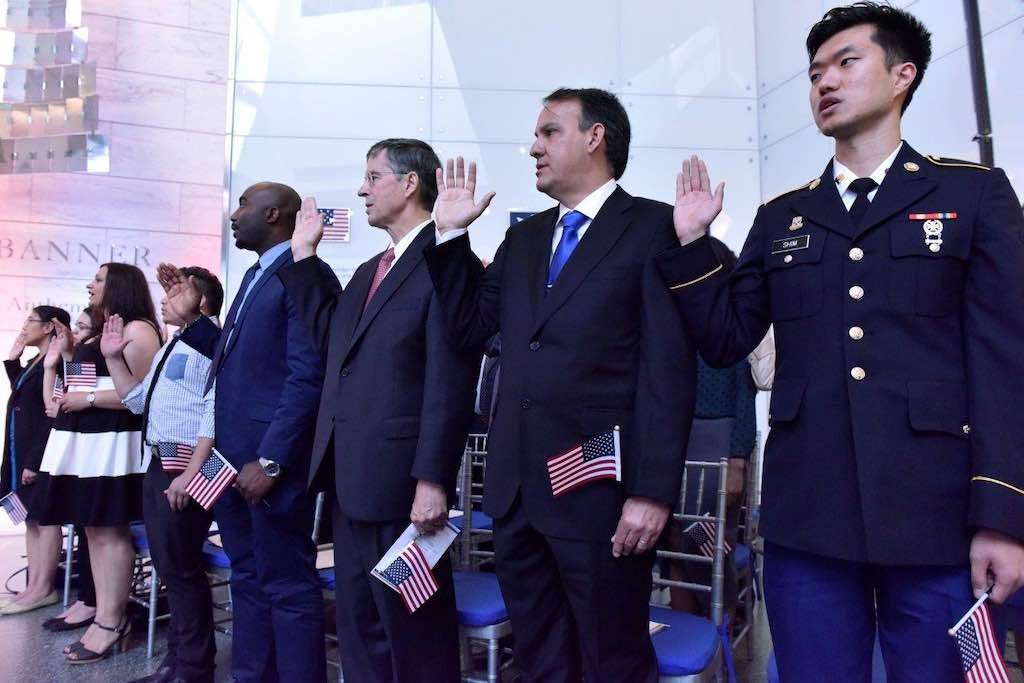
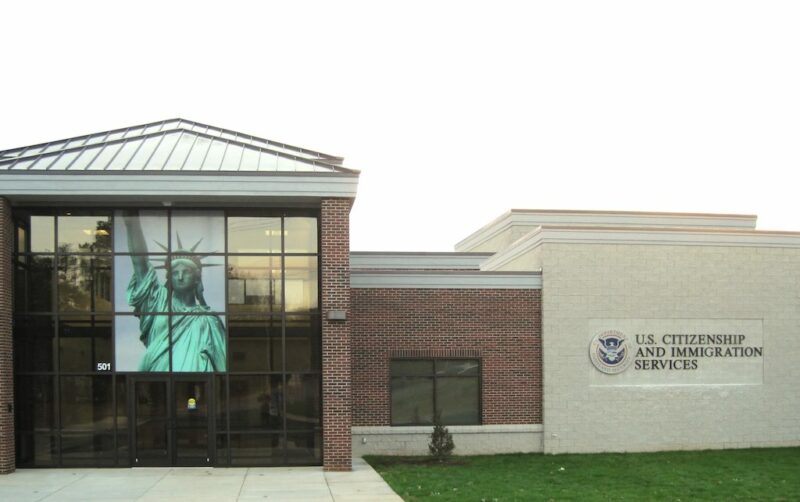
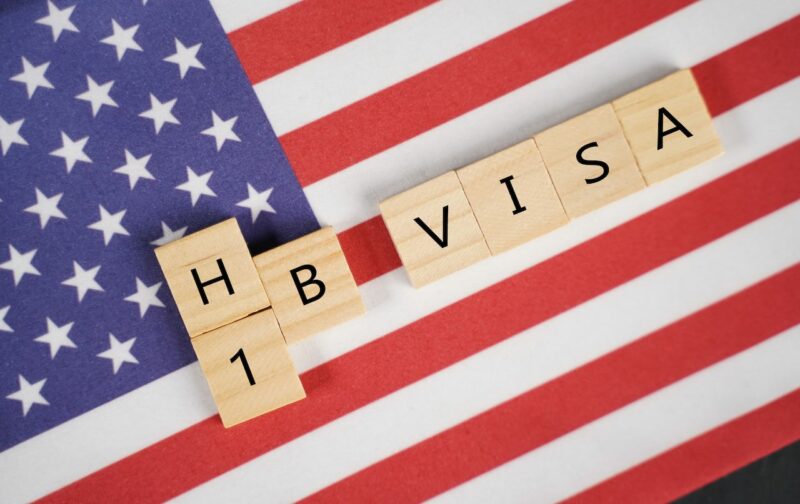
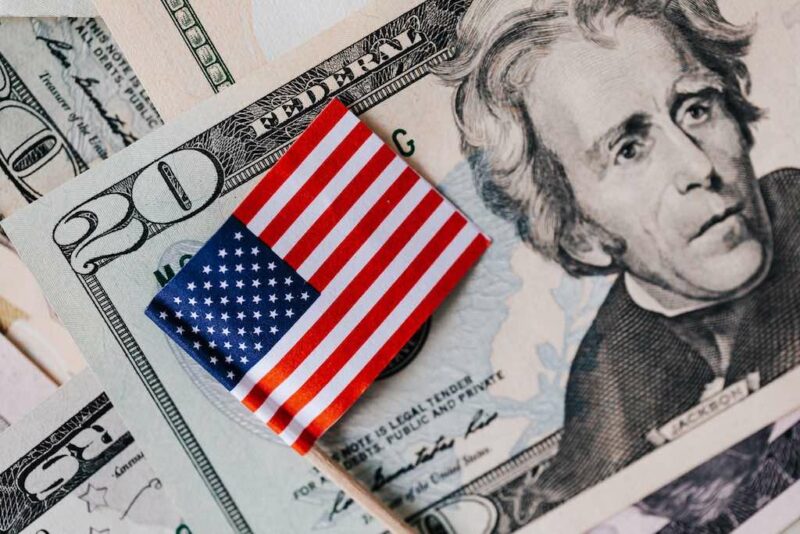
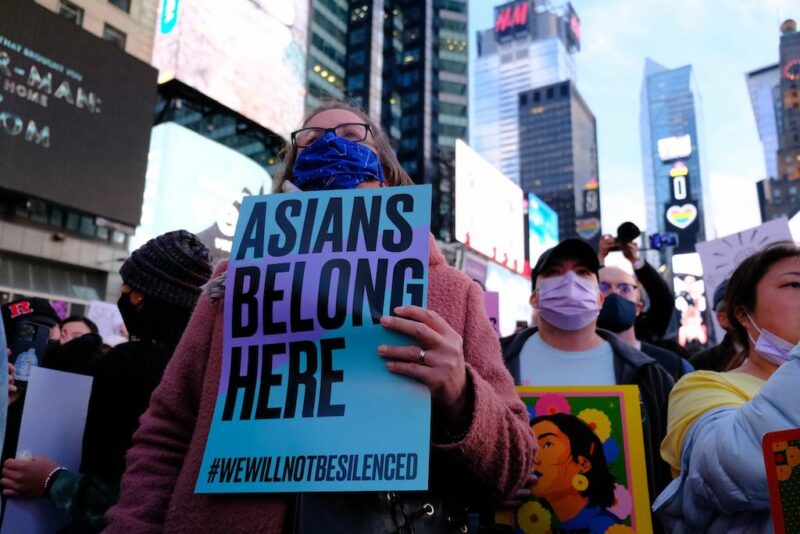



Deja un comentario